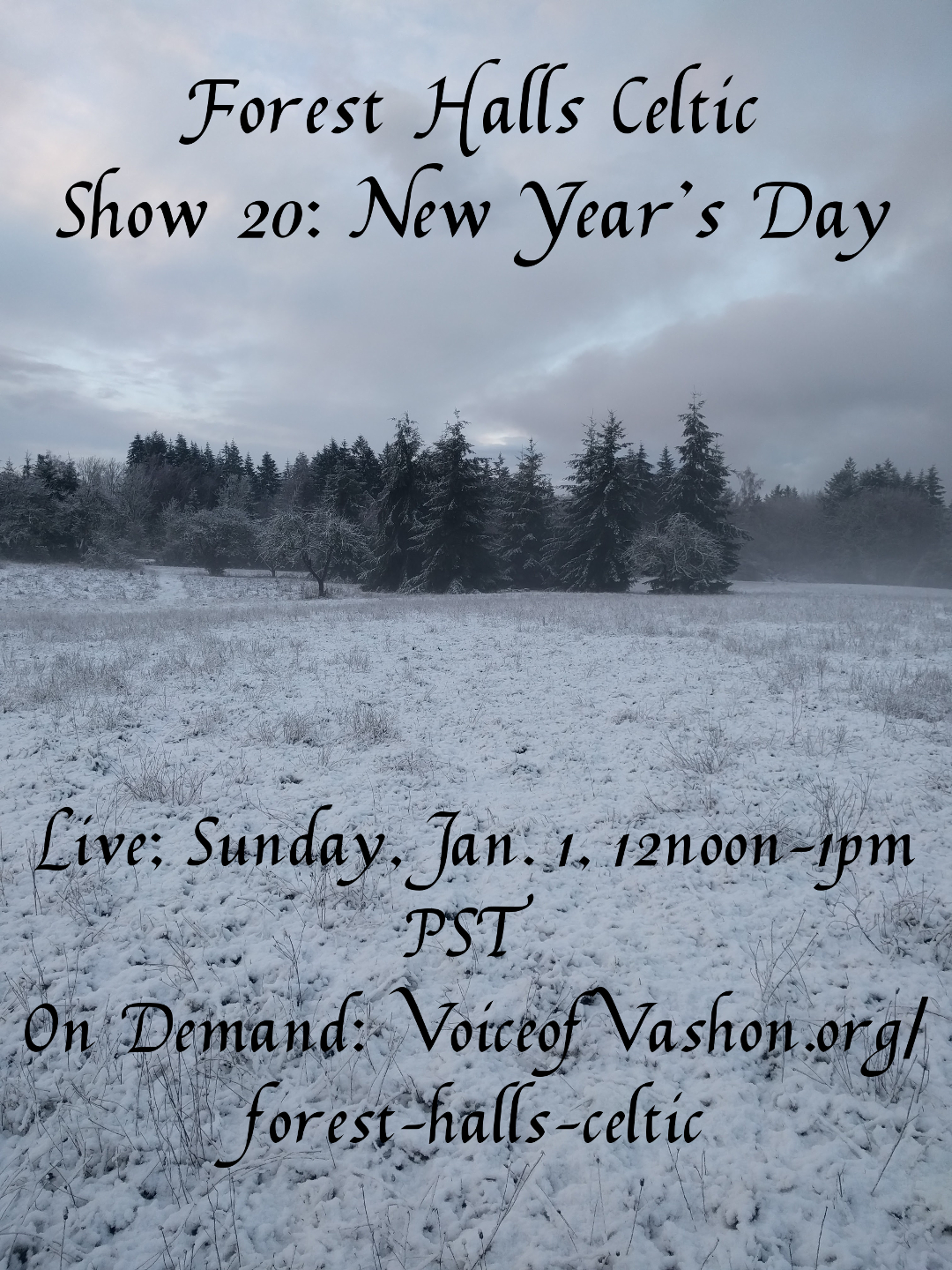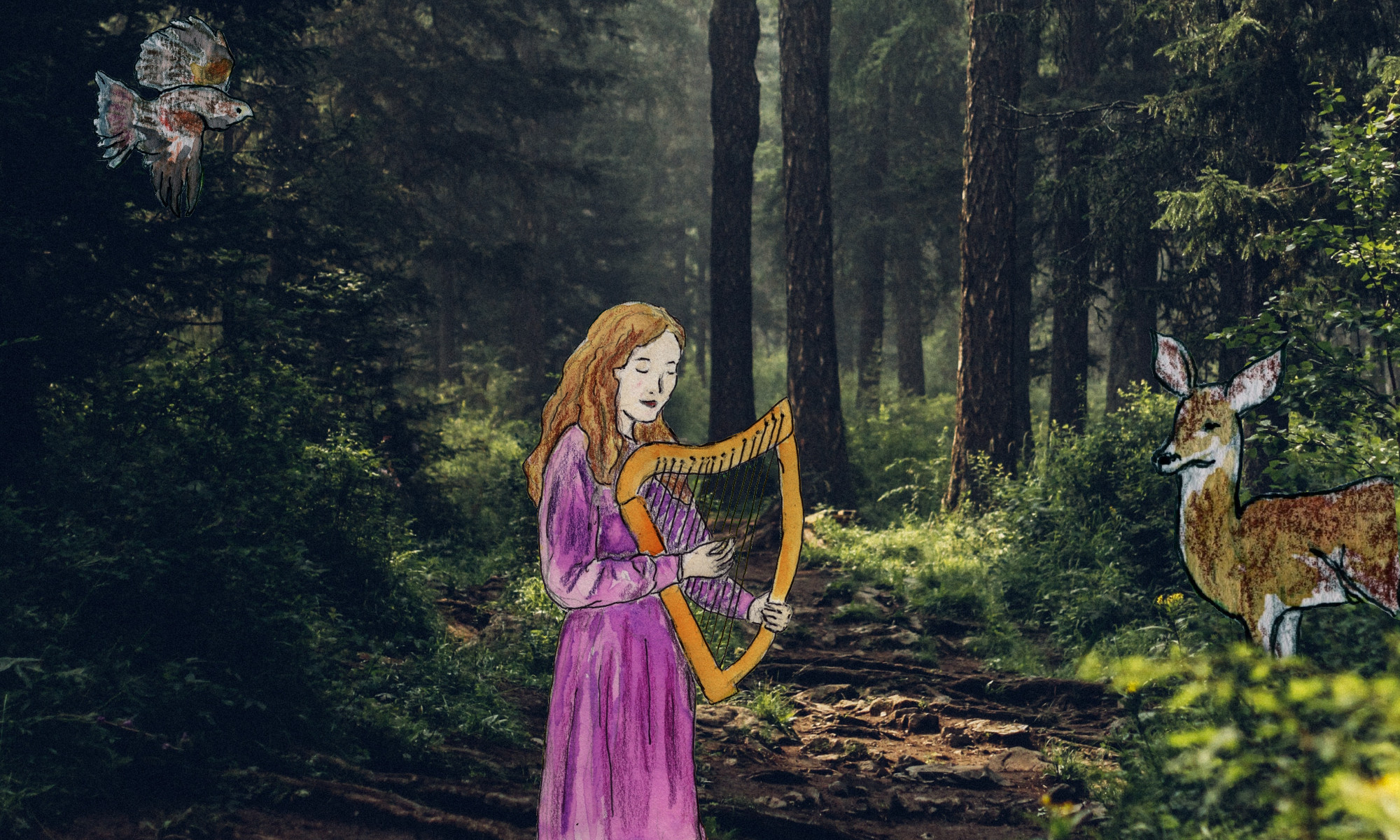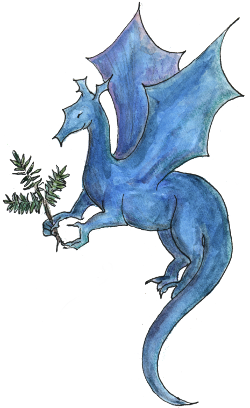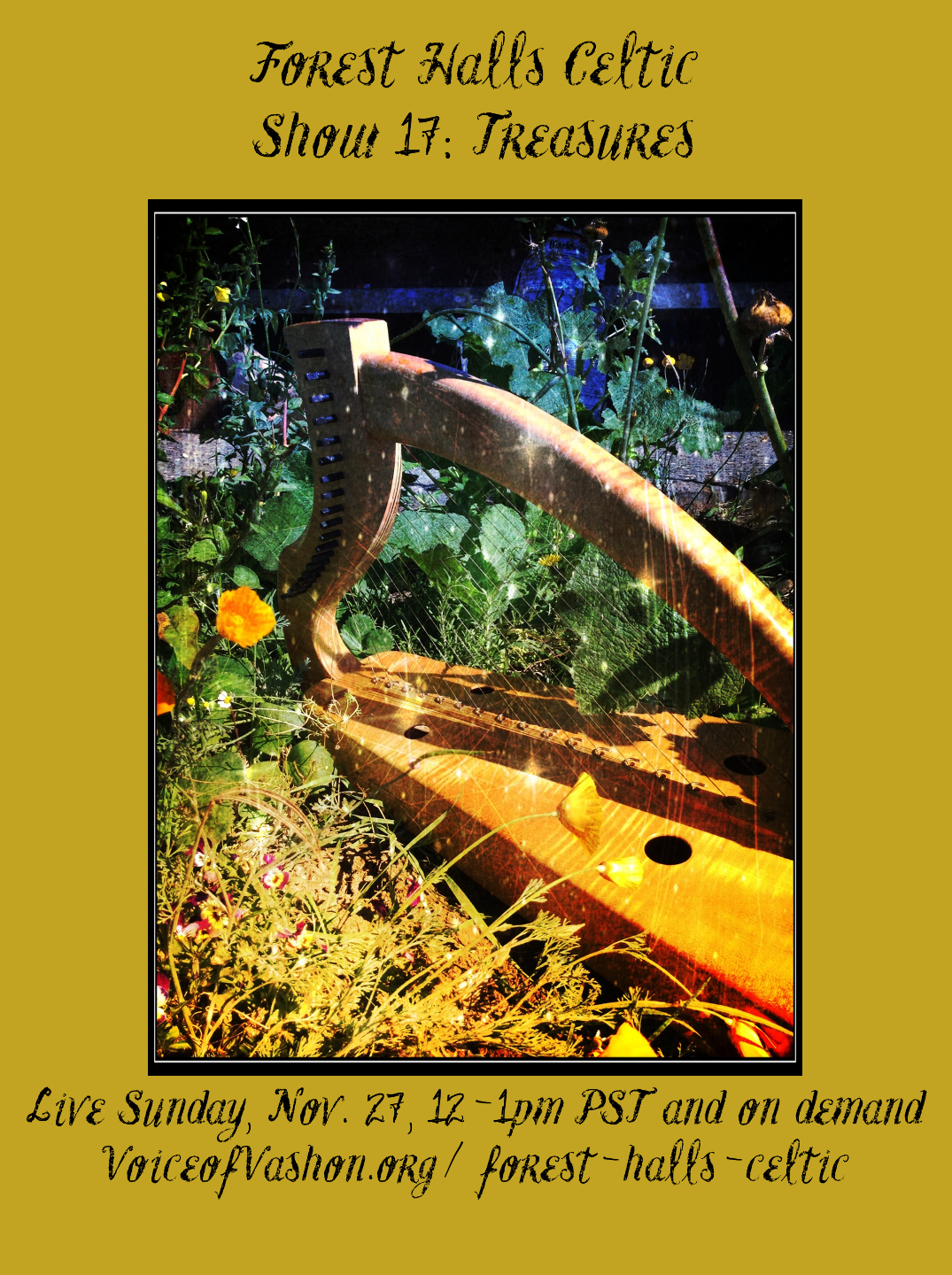Happy New Year! On this snowy day we touch into endings and beginnings, and of opening with curiosity and wonder to something new. In today’s show we enjoy celebratory music and some reflective music as well.
13:04: Tom Anderson, Aly Bain, Trevor Hunter – Da Day Dawn-Da Cross Reel
13:07: Sìleas – Se Gillean mo rùin, Gaelic New Year Song
13:09: Shira Kammen – Dunmore Lasses
13:14: Jane Valencia – Nature Mystery
13:16: Galen Fraser – The Flying Squirrel
13:19: Yo-Yo Ma – The Wassail Song_All Through the Night
13:22: Ale Moller and Aly Bain – The Full Rigged Ship_The New Rigged Ship
13:25: Barry Phillips and Friends – New Year’s Eve
13:30: Margot Krimmel and Beth Leachman (Gadbaw & Krimmel) – O’Carolan’s Dream
13:34: Iona – Gloucestershire Wassail _ Can Wassel
13:38: Kate Rusby – Cornish Wassailing
13:44: The Wailin’ Jennys – Arlington
13:49: Jane Valencia – New Years Day
13:53: Dougie MacLean – Auld Lang Syne
13:57: Spookytree (Deb Knodel & Jane Valencia) – Lochaber No More
13:59: Jewel – Raven
(play list updated to reflect Jan. 5, 2020 airing)
Listen to the latest episode here

Format: “Track Title” – Artist (CD)
“Da Day Dawn/Cross Reel” – Tom Anderson, Aly Bain, Trevor Hunter (The Silver Bow)
Da Day Dawn is may be the oldest Shetland tune known, and having perhaps Norse roots. It was played only once a year – either on Yule morning (Christmas) or New Year’s morning (there’s a little discrepency about which).
“Se Gillean me Ruin, Gaelic New Year Song” – Sileas (File Under Christmas)
Another cheerful song from Sileas’ nearly-impossible-to-find-album.
“Dunmore Lasses” Shira Kammen and Pam Swan (Wild Wood)
I love this version of the traditional Irish tune.
“The Flying Squirrel” – Galen Fraser (Mischief Managed)
The son of master Scottish fiddler Alasdair Fraser, Galen Fraser takes wing with a lively piece from his album, described as:
“A shining debut by Boston-based fiddler, singer & composer GALEN FRASER, who blends passion & playfulness in all-original tracks that display his Scottish & American heritage, a life of immersion & exploration in the fiddle music of many lands, & his sojourn in the rich environment of Berklee College of Music.” — Culburnie Records
“The Wassail Song / All Through the Night” – Yo-Yo Ma (Songs of Joy and Peace)
Yo-Yo Ma’s rendition of a familiar English song, paired with a well-loved Welsh song.
“New Year’s Eve” (Traditional English) – Barry Phillips and Friends (Colonial Christmas)
Deby Benton Grosjean on violin, Barry Phillips on cello, Linda Burman-Hall on harpsichord. Lovely!
“The Full Rigged Ship / The New Rigged Ship” – Ale Möller and Aly Bain (Fully Rigged)
Ale Möller is a Swedish musician and composer. Aly Bain is a Scottish fiddler born in Shetland who learned his instrument from the old-time master Tom Anderson. he was a prominent member of Boys of the Lough, a Scots-Irish folk group, with whom he played for over 30 years. These two musicians play two of my favorite Shetland fiddle tunes. One of these days I’m going to sit down with this track, and figure out how I might adopt this style on my harp ….
“O’Carolan’s Dream” – Margot Krimmel (White Birds)
Margot plays a beautiful and unusual version of this melody. From Gadbaw & Krimmel’s website:
“Blind harper and bard O’Carolan (1670-1738) is regarded as perhaps the greatest Irish harper. He left behind a wealth of compositions, and though some lyrics to his melodies remain, little is known about the accompaniment he may have used.”
“Gloucestershire Wassail / Can Wassel” – IONA (Mid-Winter Light)
A track from the American pan-Celtic band.
From Iona’s website:
“Wassail, a word that conjures up visions of bundled revelers sharing a hot, spiced alcoholic beverage, is derived from the contraction of the Middle English phrase wæs hæil, meaning “be healthy”. Wassailing is alive and well throughout the Celtic lands, and has been handily absorbed into Christmas observances in the singing of carols from house to house, We combine the familiar tune of the Gloucestershire Wassail with a rowdy progression through a Cornish village. The group moves through the village requesting cakes and libation at each door, gradually gathering householders as it progresses and becoming increasingly more inebriated! This has long been one of IONA’s audiences’ favorites as we exhort them to become the drunken chorus.”
CAN WASSEL (Wassail Song) – Sung in Cornish!
Nadalek yu- gyllys ha’n bledhen noweth ow-tõs
Ygergeugh darrajow h’aberveth gwren dõs.Translation:
Now Christmas is over and the New Year begin
Pray open your doors and let us come in.Chorus:
Gans agan Wassel
Wassel, Wassel, Wassel,
Lowena dh’ahan, jolyf Wassel!Chorus:
With our wassail
Wassail, wassail, wassail,
And joy come to our jolly wassail!
“Cornish Wassailing” – Kate Rusby (The Frost Is All Over)
This next set is in honor and celebration of Keith, a friend and loved one of so many here on the island and beyond. The first song is about the mystery of death: truly, Keith – your spirit is now everywhere. The second song is called “New Year’s Day,” and I play it on this show especially for Sarah. The beautiful love you and Keith share is not bound by time and space.
We finish the set with Dougie MacLean’s rendition of a familiar New Year’s song.
Blessings on your passage, Keith.
“Arlington” – Wailin Jennys (40 Days)
The Wailin’ Jennys are a Canadian music group. Written by Nicky Mehta It is said that: “Mehta’s “Arlington” … is about ‘a bird … and death,’ and is heart-wrenchingly glorious.”
Where do you go little bird
When it snows, when it snows …Where is your home restless wind
Is it there, is it here
Do you search for a place to belong
Search in vain, search in fear
Or is your spirit everywhere
Is your voice every tree
Your soul of the air
If there’s no home is there no death
Is there no death
“New Year’s Day” – Jane Valencia (RoseGarden)
A song of two sharing a love that is not bound by time or space.
The water looks like the sky
blue into blue
Constellations leaping on the whitecaps …
“Auld Lang Syne” – Dougie MacLean (Tribute)
Dougie’s rendition of this song is rich and full of heart.
Happy New Year!



